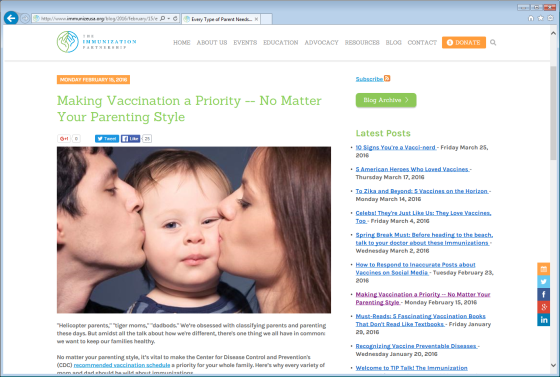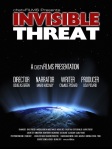
Today is the seventh annual World Autism Awareness Day, a day when organizations committed to autism research, advocacy, or policy promote awareness through events and public discussions.
As both a scientist and a father of four – one of whom is an adult child with autism (as well as other mental and physical disabilities) and a second who is actually doing her Ph.D. on the developmental psychology of autism – I am often asked to speak or provide public comment about the autism spectrum conditions, especially their causes.
Indeed, the fact that I lead a multidisciplinary team that develops neglected disease vaccines while also serving as President of the non-profit Sabin Vaccine Institute and Texas Children’s Hospital Center for Vaccine Development often places me front and center in the dialogue about purported links between autism and vaccines.
For me, the issue is completely straightforward. From a scientific perspective, there is no scenario where it is even remotely possible that vaccines could cause autism. Instead everything I know both as a parent and as a scientist points to autism as a genetic or epigenetic condition.
A new paper just published in the New England Journal of Medicine by Eric Courchesne and his colleagues at the University of California, San Diego, confirms that the brains of children with autism have distinct patches of architectural disorganization in their prefrontal and temporal cortical tissue. Because the organization of the cortex begins in the second trimester of pregnancy, Dr. Courchesne concludes that the events leading to the malformation of the cortex must begin around this time or perhaps before then, certainly well before a child is born or ever receives a vaccine.
These new findings make a lot of sense. Another term for autism is pervasive developmental disorder (PDD) and indeed I am often struck by how my child’s neurological deficits are indeed pervasive and that there is no plausible way a vaccine injection could cause such profound structural changes to the brain.
Sadly, there are still widely held misconceptions about vaccines and many parents still continue to attempt to withhold or delay urgently needed vaccines for their child. For instance my colleague Anna Dragsbaek, who heads The Immunization Partnership, tells me that each year tens of thousands of children in Texas do not receive their full complement of vaccinesbecause parents opt out due to unwarranted fears of adverse side effects of vaccines.
The results of not vaccinating your child can be devastating, such as in a recent measles outbreak in Tarrant County, Texas, and another one in Orange County, Calif., that were both totally preventable. I like to emphasize that measles is not a benign illness, and can cause pneumonia, ear infections, diarrhea and in severe cases, encephalitis.
My research group works closely with the Institute of Health Metrics and Evaluation at the University of Washington Seattle, which recently published findings indicating that worldwide 125,400 children died from measles in 2010, in addition to 81,400 from pertussis, 61,300 from tetanus, and almost one million from pneumococcal disease. We have safe and effective vaccines for each of these diseases and sadly, most of these deaths could have been prevented!
So on this day I hope to continue to educate the public both about our safe and effective vaccines, while focusing national attention on autism where it belongs, namely the urgent need for research on the autism spectrum disorders.
There are some excellent resources for the latest research on autism as and the lack of a correlation between autism and vaccines, as well as for parents to identify autism early, when intervention is most effective.
Here at Baylor College of Medicine and Texas Children’s Hospital there is some extraordinary work going on in our Department of Genetics and at the Jan and Dan Duncan Neurological Research Institute. Our scientists are making extraordinary discoveries leading to the development of new and innovative interventions to combat autism.
As a parent and a vaccine researcher, it is my hope that we put all available resources towards finding the true causes of autism, while also continuing to fully fund the research of new and emerging vaccines that have already saved millions of lives and will save millions more in the next decade. Both issues are critical to our long-term public health and economic prosperity.
By Peter Hotez, M.D., Ph.D.










